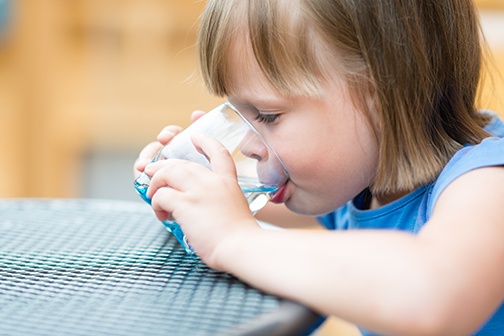Dry mouth is a problem that has undoubtedly affected everyone at some point in their lifetime, and most likely, your child has experienced it earlier than they can remember.
It can be caused by any number of reasons and most often occurs temporarily from dehydration, or from a long night’s sleep. These instances are generally situational and can be quickly resolved with a cool glass of water.
What are the symptoms of dry mouth?
The most obvious symptom of dry mouth is if your child is constantly complaining of thirst. They might also describe a sticky feeling in their mouth, difficulty chewing or swallowing, or dry and cracked lips.
Most of the symptoms can occur from time to time, for varying reasons, and are no cause for alarm. However, if the symptoms persist, they could be the sign of something more serious.
What if my constantly has dry mouth?
If your child is experiencing a persistently dry mouth, it could be from an ailment known as Xerostomia. Xerostomia occurs when the glands that produce saliva in your child’s mouth stop functioning properly. If the glands are not doing their job, their mouths will not produce the saliva they need.
If your child has a persistent problem producing saliva, it can lead to other, significant health issues. Most notably, it promotes tooth decay. Saliva is your child’s first line of defense against oral bacteria, as it helps to naturally wash it off of his or her teeth.
So what causes Xerostomia?
There are a number of different causes of Xerostomia. It could be the symptom of an underlying issue such as Diabetes, Sjörgen’s Syndrome, or high blood pressure. If your child is on medication, it could also be one of the side effects, as dry mouth is a potential side effect of many medications.
What to do if you suspect your child has persistent dry mouth.
If your child is experiencing symptoms of dry mouth frequently, schedule an appointment with your child’s dentist. We are happy to assist with any questions or concerns you might have regarding your child’s dental health.




